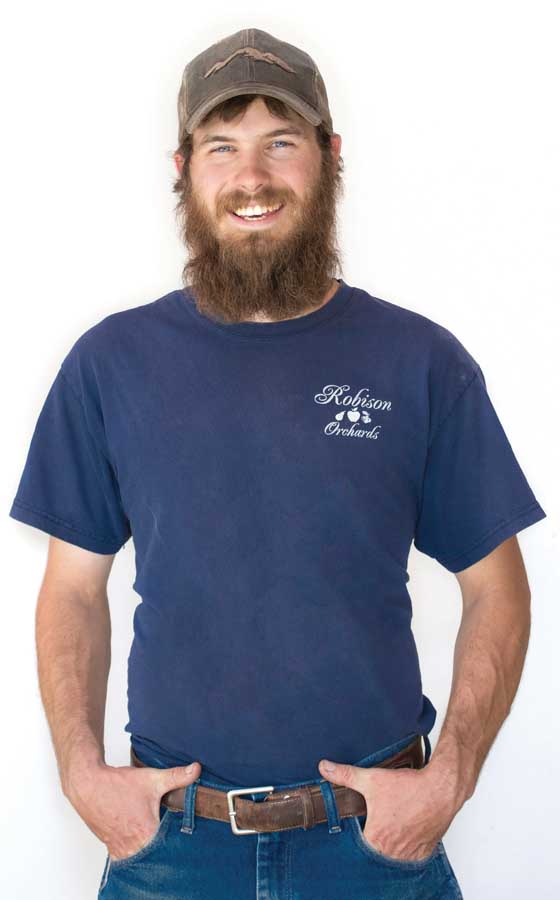grower/Chelan, Washington
age/26
crops/Apples, pears, and cherries
family background/Jake is a fourth generation farmer who grows tree fruit on 120 acres. He’s the son of Dave and Karla Robison and nephew to Allen Robison.
 What was your path to farming?
What was your path to farming?
When I was growing up, I would ride around on the four-wheeler in the orchard, learning about the orchard process and helping Dad out. After high school I needed a way to pay for college, so I joined the Army.
It was a good life experience, especially considering I chose to become a mechanic, thinking I could use those skills on the farm after I was done.
Does military experience help you today?
The military taught me a lot of leadership skills. I had the opportunity to work for sergeants I respected and sergeants that I didn’t care for.
Through their examples I learned how to communicate and be a good boss. I don’t have to be a mean, angry boss to get things done. Having the skills to direct crews in the field is invaluable.
What’s it been like returning to the farm?
I’ve got about two whole seasons under my belt now, so it’s been a quick learning curve. It’s been tough to calibrate my perception of what a good crop should look like, what’s a bad crop look like.
How does hail impact the quality of the fruit—just trying to learn about these things. As a kid, I wish I would have paid closer attention to farming details and to have a better horticultural foundation. I’m definitely learning it now.
What are your other priorities?
I’m in the middle of setting up a business plan. We are expanding our acreage and it’s been a challenge going through the process of finding employees who know what they are doing.
Part of being new, I’ve found that getting the right network of business connections and putting the right people where you need them in the company is a very important thing.
Clear on down the line—from who you want picking, driving tractor, foreman, spray boss—they are all important personnel decisions because you’ve got to have the right people in place to manage a farm.
What excites you about the next five years?
Bringing greater diversity to the farm. Right now about 90 percent is in apples, and I want to bring in more cherries and pears.
We as a company are getting more into club varieties. The older varieties work for the most part, but nowadays you need to find ways to stay competitive.
What would you tell other young growers with small farms?
Be prepared to be looking at change. I’m learning to constantly look at returns and prices. You may get stuck with a variety and you feel like, “I love it and I’m sure it’s going to make a comeback,” but that feeling may not be reality.
To make sure, you need to look at the numbers and find varieties that do work for you in your location and market.






Leave A Comment